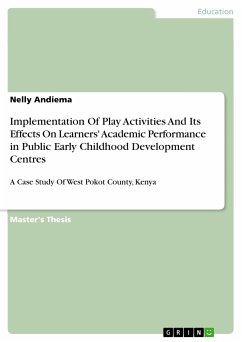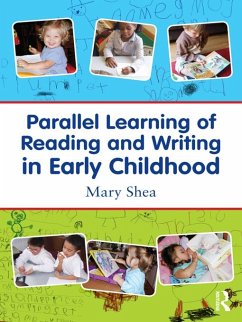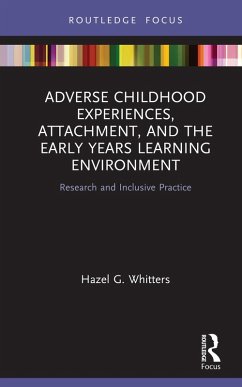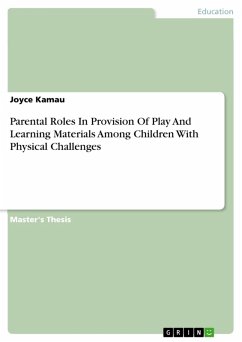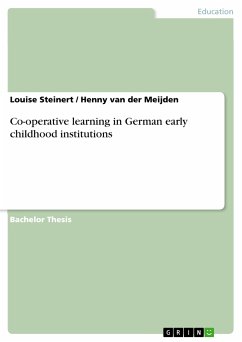
Co-operative learning in German early childhood institutions (eBook, PDF)

PAYBACK Punkte
0 °P sammeln!
Bachelor Thesis from the year 2006 in the subject Pedagogy - Nursery Pedagogy, Early Childhood Education, grade: 2,0, Radboud Universiteit Nijmegen (Radboud University Nijmegen, Netherlands), course: "Training in educational research", language: English, abstract: Co-operative learning is widely recognised as a pedagogical practise that promotes learning and socialisation. Although there are many different forms of co-operative learning, consensus exists among the researchers about its positive effects on the student achievement. Numerous of studies that have been published over the past three...
Bachelor Thesis from the year 2006 in the subject Pedagogy - Nursery Pedagogy, Early Childhood Education, grade: 2,0, Radboud Universiteit Nijmegen (Radboud University Nijmegen, Netherlands), course: "Training in educational research", language: English, abstract: Co-operative learning is widely recognised as a pedagogical practise that promotes learning and socialisation. Although there are many different forms of co-operative learning, consensus exists among the researchers about its positive effects on the student achievement. Numerous of studies that have been published over the past three decades could prove and demonstrate that forms of co-operative learning have benefits for the intellectual development and child's social gains. Co-operative learning affects the ability to construct knowledge and to build inter-group relations, enhances the child's self-esteem, and promotes the child's problem-solving skills (Liu, 1992). Research (Slavin,1995) on co-operative learning has further indicated that cooperative learning improves students' attitude toward school, learning and others. In fact, Johnson and Johnson who are well-known for their research in this field, argue that there may be no other pedagogical practises that simultaneously achieve such diverse outcomes. Most of the research took place in the range of primary school up to high school, but it is interesting to examine how co-operative learning can be used and is used in the early childhood institutions, especially in the German kindergarten. Over the years, early childhood education has stressed the importance of co-operative learning for the young child's development, and it is proved that the early learning of cooperative skills produce a long lasting effect and increase the probability of children's success throughout their school years (Lui, 1992). In spite of knowing the benefits and the positive effectiveness for the child's development, co-operative learning is not a common practise in schools for several reasons. Educators are confused about what cooperative learning is, are not well-educated in the techniques and have a lack of discipline to implement the basics of co-operative learning in the classroom.
Dieser Download kann aus rechtlichen Gründen nur mit Rechnungsadresse in A, B, BG, CY, CZ, D, DK, EW, E, FIN, F, GR, HR, H, IRL, I, LT, L, LR, M, NL, PL, P, R, S, SLO, SK ausgeliefert werden.




